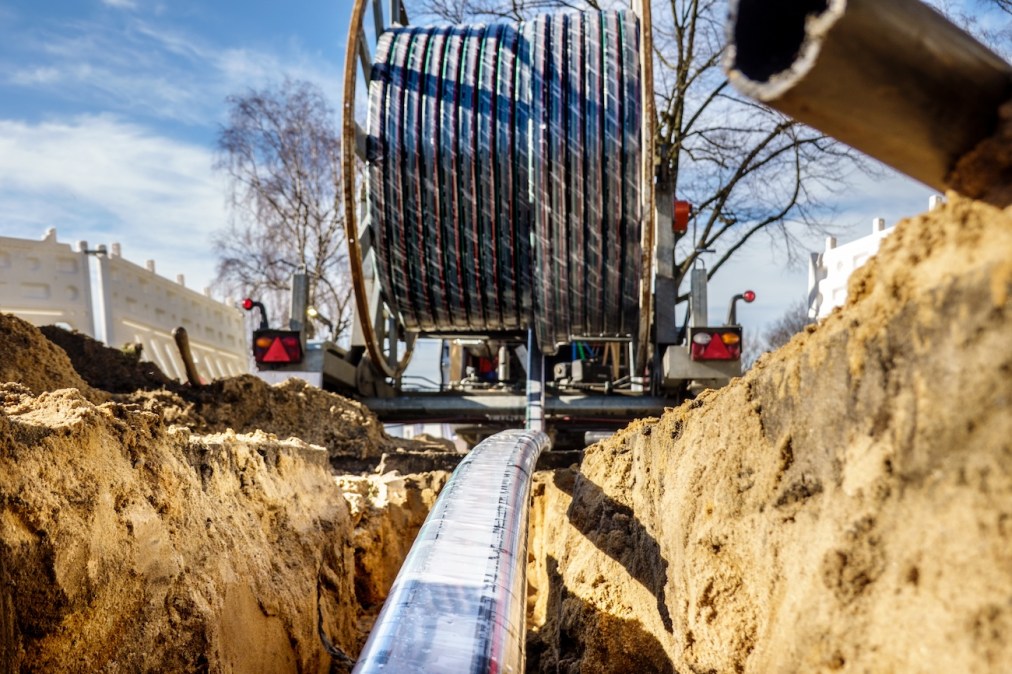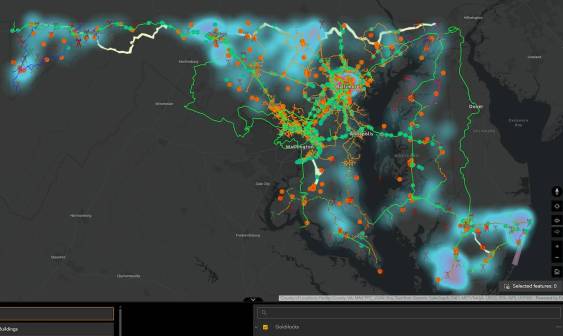FCC, Congress move to streamline state, local broadband permitting

The Federal Communications Commission and Congress are considering reforms to numerous broadband permitting processes across the country, with the aim of accelerating deployment. Most changes would potentially preempt state and local government rules.
The House Energy Subcommittee on Communications and Technology on Tuesday heard amendments and marked up 28 bills that would streamline broadband permitting, passing several Republican-led measures to rollback regulations.
And the FCC this week has formally kicked off consideration of new measures to reform broadband permitting. That process includes public comments solicited through a notice of inquiry published in September. The agency’s deadline for initial comments passed on Monday, and reply comments are due in mid-December.
Both efforts follow frustrations over the last several years with the broadband infrastructure permitting process, magnified by billions of dollars of federal investment across the states. The Biden administration created a number of federal broadband programs to expand access to high-speed, broadband internet through the former president’s Internet for All initiative, which was created by the $1.2 trillion Infrastructure Investment and Jobs Act of 2021.
The programs — including the Broadband Equity, Access, and Deployment, or BEAD, program — have been scrutinized over the last several months by federal and state leaders appointed by President Donald Trump. The Trump administration outright cancelled the IIJA’s Digital Equity Act in May, and other programs were dissected and heavily revised.
The BEAD program received the most prominent revisions, with Commerce Secretary Howard Lutnick issuing new guidance in June that restructured the program and dropped what he called “burdensome regulations,” like labor and employment requirements and climate reporting requirements that he said caused delays.
House rules
During the House subcommittee’s hearing, members discussed several bills aimed at streamlining broadband permitting processes and improving rural connectivity. Among the 28 bills, most were geared toward modernizing or streamlining the permitting process, either by reducing red tape or requiring states and local governments to modernize their permitting processes.
Following roll call votes, the subcommittee voted favorably on seven bills, sending them to the full committee for consideration, including one that would set “shot clocks” for permitting, giving state and local agencies 150 days to approve or deny new construction permits, and 90 days to respond to permit applications to modify existing broadband infrastructure. Requests that don’t receive responses within those timeframes would be automatically approved.
Other legislation passed onto the full committee would set fee limits for state and local permitting agencies.
Two other bills heard sought to address improvements with permitting processes by mandating issues with digital permitting are reported, and mandating that state and local governments offer online portals for federal land broadband applications.
Another would establish an interagency “strike force” to expedite broadband permitting. H.R. 6046, the Broadband and Telecommunications Rail Act, would aim to reduce delays in broadband deployment along railroad crossings.
The committee considered amendments addressing tribal sovereignty and funding distribution for tribal broadband connectivity. The NTIA last week announced upcoming reforms targeting Tribal Broadband Connectivity Program and another program funded by the the Digital Equity Act that benefits tribal governments, which the agency claims will cut red tape from the broadband programs and make them more flexible.
Some Democratic committee members voted in roll calls to keep regulatory measures in place, citing respect for state, local or tribal authority. Some voiced worries that certain mandates could be hard to meet by underfunded local or tribal governments. Others worried about the environmental impacts of cutting rules that require internet service providers to submit climate reports as part of the permitting process.
Republicans voted in support of several of the deregulatory measures, verbalizing support for speeding the process along and reducing burdensome and “duplicative” reviews.
“Today, the NTIA approved 18 states final proposals, so BEAD funds are on the way,” Rep. Richard Hudson, a Republican from North Carolina and chairman of the subcommittee, said Tuesday. “They’re out the door. But almost as importantly, because of innovation and efficiency, eliminating burdensome rules and regulations that were part of the BEAD program, the Trump administration has saved taxpayers $6 billion on just these first 18 states. So, not only is the money moving, but because we got rid of burdens and regulations and requirements, it’s being done much more efficiently at a greater savings to the taxpayer.”
‘Costly maze’
Public comments have piled up in response to the FCC’s notice of inquiry, titled “Build America: Eliminating Barriers to Wireline Deployment,” which seeks input on ways the agency can use its authority to streamline deployment of towers and other wireless infrastructure. However, in doing so, the inquiry says, the FCC will seek to root out and potentially preempt regulations at the state and local level “that inhibit the deployment, densification, and upgrading of wireless networks, resulting in an effective prohibition of 5G wireless services.”
The trade association USTelecom this week filed comments on the notice, urging the agency to expedite and standardize permitting processes ahead of states receiving their BEAD funds. The association called for “reasonable, cost-based, and transparent standards that end the costly maze of state and local permitting rules holding back America’s broadband future.”
USTelecom cites examples in which local permitting delays cost internet service providers thousands of dollars and delayed some projects by more than a year. The group said the FCC should establish uniform national timelines for permitting, require application or administrative fees to be cost-based and transparent, and lastly, promote coordination and best practices at the state and local level.
“America cannot afford a permitting system that slows progress more than it speeds it,” the group said in a statement. “Clear national standards will help unlock faster, more efficient broadband construction and ensure every community can take part in the country’s innovation economy.”






